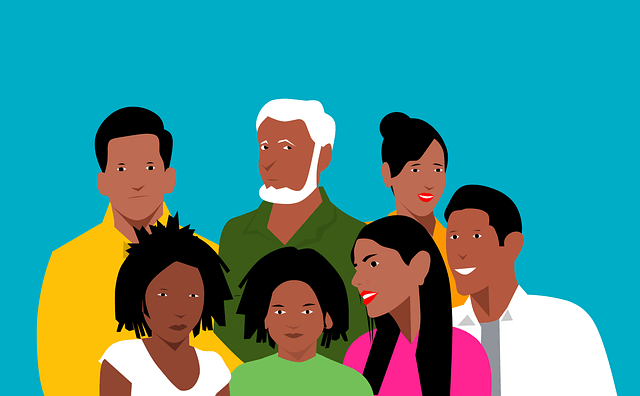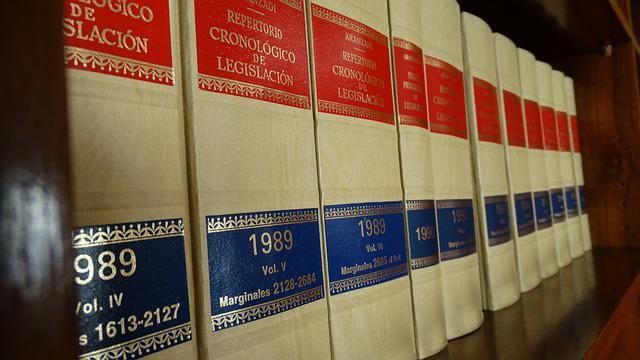Public Services
المقررات الدراسية موسومة بـ "Public Services"
How Public Services Meet the Needs of Society
Learn more about the role of the public sector in areas such as education, criminal justice and leisure. This course is ideal for intermediate learners.
Introduction
Education is another part of Public Services. Every citizen in the UK has the right to education. Education allows us to learn new skills and values through learning subjects such as; Maths, English, Science, Art, Geography and History.
By getting an education it allows us to get qualifications and meet the needs for specific jobs within our society.
You will learn
- Education
- Health
- Criminal justice
- Environment services
- Leisure
- Social welfare
Human Rights and Public Services
Learn about the Human Rights Act 1998 and other legislation to protect your rights as a citizen. This course is ideal for intermediate learners.
Introduction
As normal citizens in the UK we are expected to follow the laws of the country and be good citizens. Members of the public services also have to obey the laws that everyone else does, but they have additional laws to follow because they have additional powers that normal citizens do not have.Every statutory public service in the UK has its own legislation, to describe not only how the service should function but also its limitations and restrictions. Members of the public services should be role models and examples to others. They need to have authority and that can only be achieved if they are good citizens and obey the law themselves.
Human rights are things to which individuals in society are entitled. These rights are laid down in law, so if these rights are violated, then a UK citizen can go to court to seek justice. The principal law in the UK is the Human Rights Act 1998.
Human rights can be split into two sections:
1. Protection
2. Rights or entitlements
You will learn
- Human Rights Act 1998
- Other legislation (law) that protect your rights as a UK citizen
Public Services are in Place
Learn about why public services are important and what are the needs of a diverse society. This course is ideal for intermediate learners.
Introduction
The public services play a vital role in our lives. We need the public services to meet the needs of a diverse society.The concept of diversity encompasses acceptance and respect. It means understanding that each individual is unique, and recognizing our individual differences.
You will learn
- Why public services are important
- What makes people diverse
- A range of reasons why public services are in place
The Cost of Public Services
Learn how much public services cost and how charities contribute to them. This course is ideal for intermediate learners.
Introduction
The top three spending categories include:· Social protection
· Health
· Education
The following categories explain where the Government spends money:
Social protection costs £222 billion (the figure is for training purposes only)
The most money is currently spent on social protection (or welfare) which helps those who are disadvantaged, including:
o Pensions
o Disability benefits, such as cars, parking and prescriptions
o Housing, such as accommodation and upkeep
o Unemployment benefits
o Family benefits, for instance tax credits
Social security spending in UK
Over 55% of social security expenditure goes to pensioners.The government is forecast to spend £121 billion on pensioners and £94 billion on working age people and children this year. In 2017 to 2018 £121 billion was spent on pensioners and £96 billion was spent on working age people and children.
You will learn
- How much public services cost the government
- The top three spending categories
- How charities contribute to public services
The Responsibility of Public Service Employees
Learn more about the different types of responsibilities Public Service employees have and the importance of these. This course is ideal for intermediate learners.
Introduction
· Obeying the law
· Maintaining professional standards
· Following codes of practice
· Promoting diversity
· Following anti-discrimination policies
· Following procedures for complaints
As a member of the Public Services, it is important that you not only uphold the law but you also obey it.
Just because you work in Public Services does not mean you can do whatever you want. However, there might be times where Public Services employees may have to break the law.
You will learn
- Identify different Public Service responsibilities
- The importance of the responsibilities public service employees have
Public Services and Legislation
Learn about the legislation surrounding the public sector and equality duty. This course is ideal for intermediate learners.
Introduction
All public services have to comply with the Equality Act 2010 and this states that they must also comply with the public sector equality duty. The equality duty ensures that public services think about how they deliver their services and how this will impact on those who are disadvantaged or within the protected characteristics group.
As with discrimination exceptions, there are situations where public services do not need to comply with these duties. These include the following areas:
Judicial Events – The courts do not need to think about the equality duty when making decisions or when and how they conduct the proceedings.
Age in education or children’s home – Schools do not need to think about how to develop good relationships between pupils of different ages. However they need to consider this between pupils of different religions.
Immigration - When involved in immigration proceedings, public services would not need to think about the advance equality of opportunity (treating one group more favourably than another because of their disadvantage) to those in the following protected groups:
- · Age
- · Religion
- · Race
You will learn
- Public sector equality duty exceptions
- Types of legislation under the equality duty
- Policy and decision making processes
Public Services and Equality
Learn about equality and how it affects people and public services. This course is ideal for intermediate learners.
Introduction
Equality is based on the understanding that everyone should be treated equally, so that they have the same opportunities as each other regardless of, for example, their age, sex, sexuality, disability or race.People treated unequally due to these differences are being discriminated against, which is illegal.
We are protected from discrimination through the implementation of the Equality Act 2010.
Equality Act 2010.
below some of the nine pieces of legislation were merged to create the Equality Act 2010.
EQUAL PAY ACT 1970: Stops any favourable or unfavourable treatment of pay, or any other conditions, within employment between men and women.
RACE RELATIONS ACT 1976: The protection against discrimination relating to a male or female’s race, colour, ethnic or national background in education and employment and during the process of buying goods or services.
EMPLOYMENT EQUALITY (RELIGION or BELIEF) REGULATIONS 2003: Used to protect people
from being discriminated against due to their religion or belief, or non-religion/belief
within employment.
EMPLOYMENT EQUALITY (SEXUAL ORIENTATION) REGULATIONS 2003: The protection against discrimination due to expected or known sexual orientation within employment, which also includes discrimination against religion, belief and age.
EMPLOYMENT EQUALITY (AGE) REGULATIONS 2006: The protection against discrimination on the grounds of age within employment. Employees may work after the national retirement age.
You will learn
- Equality
- What is equality
- How equality affects us and the public services
Public Services Affected by Finances and Social Inequality
Learn more about how public services are affected by finances and social inequity. This course is ideal for intermediate learners.
Introduction
The Public Services rely on funding from the Government to survive. The Government has to choose how much money it allocates to each service, based on the money they have. When the Government needs to save money, they can often make cuts to different Public Services.What effect can it have?
· Slower response times
· They may cut jobs
· Reduced hours
· Station closures
· Reduced training
· Removal of specialist equipment that is expensive to run
You will learn
- Government finance
- Fire service
- Police
- Social inequality
Individual Rights Dignity & NHS
Learn more about dignity and rights when using public services. This course is ideal for intermediate learners.
Introduction
In life we need to use the Public Services many times for different reasons. It is important that when we need these services that they are high quality services.For example, if you were to call the Paramedics in an emergency and they did not turn up until the next day this could be very dangerous and would be an example of poor quality service.
Another example could be if you called the fire service and they did not turn up with the correct equipment with them, then lives could be in danger.
You will learn
- Public services users rights
- Your right to consent to treatment when using the NHS
- Why it is important to have your dignity maintained when using public services
Individual Rights-Public Service
Learn more about the right of public service users and why they are important. This course is ideal for intermediate learners.
Introduction
In life we need to use the Public Services many times for different reasons. It is important that when we need these services that they are of a high quality.For example, if you were to call the police in an emergency and they did not turn up until the next day, this could be dangerous and would be an example of poor quality service.
Sometimes, the quality of a services isn’t as good as it should be. There have been several real-life incidents where a victim of a crime has called the police, and there has been a serious delay in officers attending the crime scene. This is typically seen as unfair treatment and it usually results in compensation.
You will learn
- Public services users rights
- The rights of Public Service users and why they are important
- The importance of high quality public services and examples of this
- Why it is important to be treated without discrimination when using public services
Impact of Public Services on Society
Learn about how public services are paid for and their impact on society. This course is ideal for intermediate learners.
Introduction
Why do we have Public Services? Public services often provide goods or services that are not normally provided by the private market. It makes sense that the private sector is not allowed to provide a police or national defence service, as these areas should not be administered for the sake of profitable gain (for money). Although this is not the case for all Public Services, some services are run by private businesses, for example, prisons.
You will learn
- Paying for public services
- How public services are used
- Reforming public services












